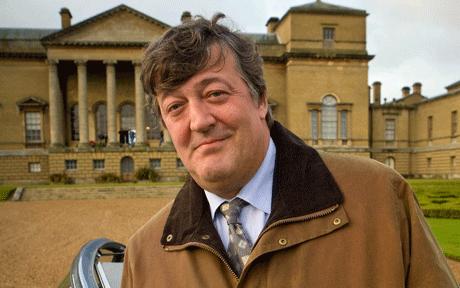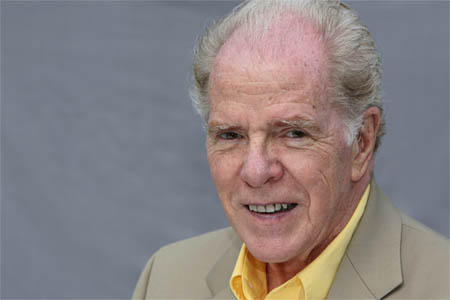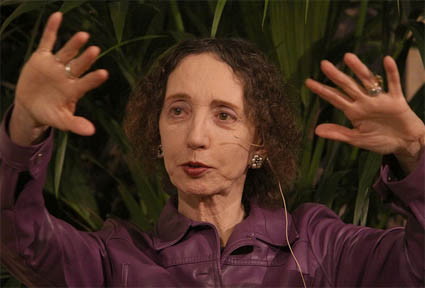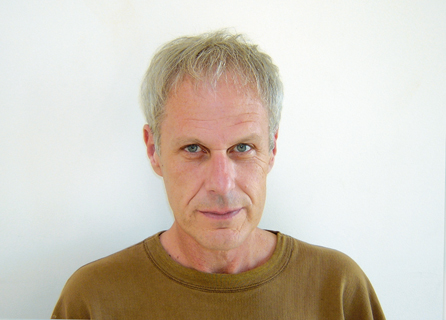Adam Wilson appeared on The Bat Segundo Show #439. He is most recently the author of Flatscreen.
Listen: Play in new window | Download
Condition of Mr. Segundo: Seeking his remote control and his dignity within an armed blanket.
Author: Adam Wilson
Subjects Discussed: Wilson’s dislike of flying, Will Self’s rules for writers, Flatscreen‘s televisual influence, working at Flavorpill, innovating literature through the Slanket, attempts to win television watchers to literature, the couch potato as Renaissance man, using bulleted lists and possible endings as alternative chapters, Frederick Exley’s A Fan’s Notes, awkward uses of Viagra, the davenport vs. the Slanket, Saul Bellow’s The Adventures of Augie March, Johnson going to Columbia because he was a Sam Lipsyte fan, “Portnoy and Playboy Go to Summer Camp,” reading Portnoy’s Complaint at the age of 13, satisfying queasiness and Jewish identity, brutal workshop smackdowns, finding a new take to send up middle-class suburbia, 21st century Borscht Belt schtick, the difficulties of writing about synagogues, spiritual vacancy, troubled and handicapped mentors, Augie March character inspiration for Flatscreen, The Modern Library Reading Challenge, creating a fictitious Boston suburb, Matt Corley’s obsessively hyperlinked interview with Wilson, Newton, Massachusetts, finding creative freedom drifting away from the realities of location, the frequency of Boston residents who live and spend time and do bad things in basements, unappealing young men with profligate sex lives, pathetic people who hook up, ensuring one sexual climax every 100 pages, throwing humiliation at a protagonist, needlessly beautiful people in contemporary fiction, the cruel fates that Martin Amis hands his characters, Money‘s John Self, Dead Babies, Success, Lord of the Flies, going through a rough period while writing Flatscreen, Kurt Vonnegut’s idea (“In America, high school never ends”), adults who live with their parents, Lipsyte’s Venus Drive, Eli being a good cook and eating good meals alone, men who build arsenals of kitchen utensils rather than making weekend trips to Home Depot, gender roles in urban environments, cooking shows and masculinity, finding an agent, writing Flatscreen over five years, resistance to unlikable characters in contemporary fiction, hostility from Goodreads, Cynthia Ozick, Amazon reviewers, Fitzgerald as a commercial failure during his lifetime, The Great Gatsby, Wilson’s father beaten down by Amazon reviews, being a victim of impressions made by blurbs, working as a bookseller at Bookcourt, false romance attached to literary people, trying to get a mass audience excited about books attached to smaller audience, Ben Lerner’s Leaving the Atocha Station, slipping secret books to students and customers, competing literary canons vs. secret books, creative writing programs as your buying audience, Richard Nash, the literary inefficiencies of the American education system, teachers and enthusiasm, George Saunders, Donald Barthelme, how literature can encourage young people to rebel, Gary Lutz’s “The Sentence is a Lonely Place,” fusing different sentences together, Wilson’s answer to “portable solitude,” ideal sentences, and the inner life vs. dramatic narrative.
EXCERPT FROM SHOW:
Correspondent: I’m glad I could get in touch with you before you were actually getting on a plane.
Wilson: Yeah. No, it’s good. I hate flying.
Correspondent: Oh, you do? Well, what’s wrong with flying?
Wilson: Um…
Correspondent: Aside from the security theater and all that?
Wilson: No, it’s…
Correspondent: Aside from the defenseless position you’re put in?
Wilson: Yeah. That’s a big part of it.
Correspondent: Aside from the lame snacks that you get? Sorry. I don’t want to be negative here.
Wilson: Yeah. You sort of hit the nail on the head.
Correspondent: Yeah.
Wilson: Although I do love Ativan. So it’s sort of a…
Correspondent: (laughs) Let’s get into the book. I actually wanted to broach the TV question from a weird angle. One of the items contained within Will Self’s half-serious, not really serious rules for writing. He has this on his list: “Remember how much time people spend watching TV. If you’re writing a novel with a contemporary setting there need to be long passages where nothing happens save for TV watching.” Now I know that you once worked as a TV blogger for Flavorwire.
Wilson: That’s true.
Correspondent: There is a notable televisual influence down to the technical details in Flatscreen that is often so striking that one, in fact, even encounters Eli’s mom sleeping on a sofa in a Slanket. So I’m wondering. Do you have any pragmatic ideas…
Wilson: The Slanket was actually a period detail.
Correspondent: Ah, yes! Okay.
Wilson: Not to go off topic too much.
Correspondent: I’m sorry to be so out of touch. (laughs)
Wilson: But I will say the Slanket was the one thing that I guess I had to change in the book. Because I originally had it as a Snuggie. The book’s set in 2006. And the Snuggie was not yet on the market.
Correspondent: Oh, that’s right. Yeah.
Wilson: But the Slanket was.
Correspondent: Yes.
Wilson: It was sort of the precursor. But the Snuggie has since taken a monopoly on the armed blanket.
Correspondent: The armed blanket thing.
Wilson: Yes.
Correspondent: No, Slankets do seem very endurable — the Slanket, I have to say. So maybe they just seem to last like plastic that’s not going to biodegrade or something.
Wilson: Oh yeah. Anyway…
Correspondent: No, no, no! Thank you for the clarification. It’s very important to get the Slanket detail right.
Wilson: It might be that I think I learned about both items in infomercials. (laughs)
Correspondent: Well, I mean, the question I have is how novelists can win over readers from television. And do they need to follow this advice that Will Self offers. Writing long scenes describing watching television? To what degree was the process of writing Flatscreen your way of contending with your own television feelings? Clearly, we touched a nerve here on the Slanket thing.
Wilson: Yeah. (laughs)
Correspondent: Let’s just get the ball rolling here. Do you need to specialize also in short alternating chapters? That’s a lot to throw. So go for it.
Wilson: No. I don’t think necessarily. I don’t know. It does seem like a ridiculous rule. Will Self’s rule seemed almost the opposite of what you’re probably told in most writing programs. Which is: set up conflict so that your characters can move around rooms and pick up objects. And stuff like that. I don’t know. I think more so, I was just interested in a character whose worldview has been so shaped by television. Perhaps in the way that mine has, or that people of my generation or even your generation, a slightly younger, probably a slightly older generation too have. I like the idea of having this guy whose kind of poorly educated and didn’t pay attention in school. Didn’t go to college. But at the same time, he actually has quite a lot of information available to him. Based on the fact that he’s watched an incredible amount of television. And I like this idea that if you actually spend days just watching The Discovery Channel and The History Channel and The Nature Channel, but also the news and CNN and old movies on AMC, that you could sort of become this Renaissance man of knowledge, in that you know about all sorts of different things without having any kind of deeper understanding of any of them.
Correspondent: So the couch potato is a superficial Renaissance man?
Wilson: Yeah.
Correspondent: That’s all America has to offer these days? (laughs)
Wilson: (laughs) Well, I don’t know.
Correspondent: Come on! We’re trying to win these people so that they dive into libraries! I was hoping that you, the guy who managed to synthesize TV in novel form, might have a few ideas here.
Wilson: Um, no. I have almost no ideas on that front. I think we’re losing the battle.
Correspondent: We are losing the battle. But at least it’s marvelous nonetheless to watch this cultural phenomenon mushroom as it is.
 Wilson: Sure. Then again, I have received — I sort of did have this idea that, oh, you know, maybe people can relate to this. Because we all spend our time on the Internet and watch a lot of movies on TV and stuff. But then I’ve gotten all sorts of criticisms on Goodreads and from bloggers complaining about how this guy just sits around and watches TV and doesn’t do anything. So maybe these people, who are complaining about the book, are like living these rich lives that the rest of us aren’t experiencing. And they’re sick of reading about characters. I don’t know. They probably wouldn’t like Will Self’s books either.
Wilson: Sure. Then again, I have received — I sort of did have this idea that, oh, you know, maybe people can relate to this. Because we all spend our time on the Internet and watch a lot of movies on TV and stuff. But then I’ve gotten all sorts of criticisms on Goodreads and from bloggers complaining about how this guy just sits around and watches TV and doesn’t do anything. So maybe these people, who are complaining about the book, are like living these rich lives that the rest of us aren’t experiencing. And they’re sick of reading about characters. I don’t know. They probably wouldn’t like Will Self’s books either.
Correspondent: Yes, that’s true. Well, I’ll get into the Goodreads review thing. Because I actually checked them out too. But I wanted to get into your book before we actually did that.
Wilson: Sure.
Correspondent: I mean, you have this strategy of alternating chapters throughout the book. It kind of relates to what we’re talking about here. Where you’ll have something short, followed by another Eli episode. The first two parts of the novel have these bulleted lists. You have things such as “Facts About My Mom.” “Ways In Which I am Like a Rapper.”
Wilson: That’s one of my favorites.
Correspondent: Good! I caught the right one. And then the third part shifts to all these possible endings. And then Eli starts to reference these narrative terms near the end. Sitcom C-plot. Things like that. So I’m wondering to what extent these alternative chapters were almost a series of bona-fide notes to help you better know your character in your book. How did this tension between the self-reflective and almost the self-aware narrative occur during the course of writing this book? I’m curious.
Wilson: I think it happened in a few different stages. Originally, the book was quite a bit longer. And I felt it was bogged down. I felt it was a bit slow and that there were two things slowing it down. One is that there was a lot of time spent relating backstory. Things about this character’s childhood memories. And all this type of stuff that I felt was really slowing down the pace of the book. Because I knew I wanted to have this really quick pace. And maybe part of that is trying to appeal to readers who have low attention spans.
Correspondent: Well, this leads me to wonder. Did the bulleted lists come from the larger draft? Where one would normally expect that type of thing to come from a notebook, the awkward details you plucked from…
Wilson: Exactly. Exactly.
Correspondent: Wow.
Wilson: So I wanted to figure out a way to speed it up without losing a lot of this information. And so I thought of these kinds of lists. And I ended up cutting about 100 pages from the book and replacing it with all of these interesting little chapters that I hoped were doing some of the work in a kind of fun and more entertaining and quicker way, and that felt right for the character who is reading blogs. And it felt like it worked. So that was one thing. And then as for the other endings, I think those in part came out of — one thing I think the character Eli is struggling in the book is this idea that everything, all his points of reference, comes from television and movies. And he has this idea that he wants to be in the classic coming-of-age movie. He wants to grow and become a real person maybe. Whatever that means. And live some kind of grown-up life. But his imagination, I think, has been compromised in some way. Because I think everything he can imagine is something he’s seen in a movie or on TV. And he has bad points of reference in terms of his family. He can’t look at his father and say, “I want to be like that.” So he looks at movies and he says, “Well, I could be like that. But is that realistic? Or is that even a possibility?” Or has it gotten to the point where American life is really just a kind of imitation of these tropes and this received culture or narratives? And I think Eli’s struggle with that reflected my own struggle as a writer to try and imitate and write a book in a genre that’s been done a million times and come up with a kind of narrative that is, at the same time, aware of all that’s come before it and doesn’t cop out and have and ending where someone drives off into a sunset with a perfect song playing. And so the way I battled that was to have Eli himself imagine all these endings that he’s seen before. But then they don’t all come at the end. They come over the last 100 pages. So I think that each time one is presented, my hope is that, with the book continuing along, that ending is passed over. And that it’s pointed out as being ridiculous or unrealistic or cliche or impossible or all of those things. And then life continues to go on in the book.
Correspondent: But it’s also trying to find an ending while all these other things are happening.
Wilson: Sure.
Correspondent: Which also made me — I had a total wonkish question for you. But the whole incident on the football field with the Viagra.
Wilson: That’s not really happened to me. (laughs)
Correspondent: (i>laughs) Well, I was going to ask first and foremost, what is your Viagra experience? And second, I mean, that almost seemed to remind me, almost, of Frederick Exley’s A Fan’s Notes. I’m wondering if that might have been a possible nod.
Wilson: A Fan’s Notes is one of the books I’ve read more times than any other book.
Correspondent: And, of course, Exley talks about reading other books multiple times.
Wilson: Yeah.
Correspondent: Was that a touchstone for you? In terms of reading?
Wilson: In my life. It’s funny. I didn’t think of it that much. In terms of when I was working on the book. But it’s a book that’s been really important to me in my life. And interestingly, I think, in that book, one of his touchstones is Saul Bellow’s The Adventures of Augie March.
Correspondent: Which I also know is a big influence on you.
Wilson: Which was in some ways a big influence on this book too. So maybe it all kind of comes together. But A Fan’s Notes is great. I just did a piece for Flavorwire on my ten favorite slacker novels,
Correspondent: Oh yeah?
Wilson: I think my favorite thing about that book is that it introduces a great piece of slacker furniture I’d never known about. Which is the davenport.
Correspondent: Yes. (laughs) So there are all these little clues for furniture that almost doesn’t exist anymore in there.
Wilson: Yeah. It’s the perfect slacker item, I think. (laughs)
Correspondent: Well, it makes me wonder if Flatscreen is, in some sense — I mean, we were talking about it being set in 2006 — whether it’s more of a historical novel as well. Maybe your davenport is the Slanket. (laughs)
Wilson: Yeah. I think so. I’d like to think that. If I leave one thing in the world, it’s to put the Slanket into the history of American literature.
Correspondent: (laughs) We need more writers to do that.
The Bat Segundo Show #439: Adam Wilson (Download MP3)




